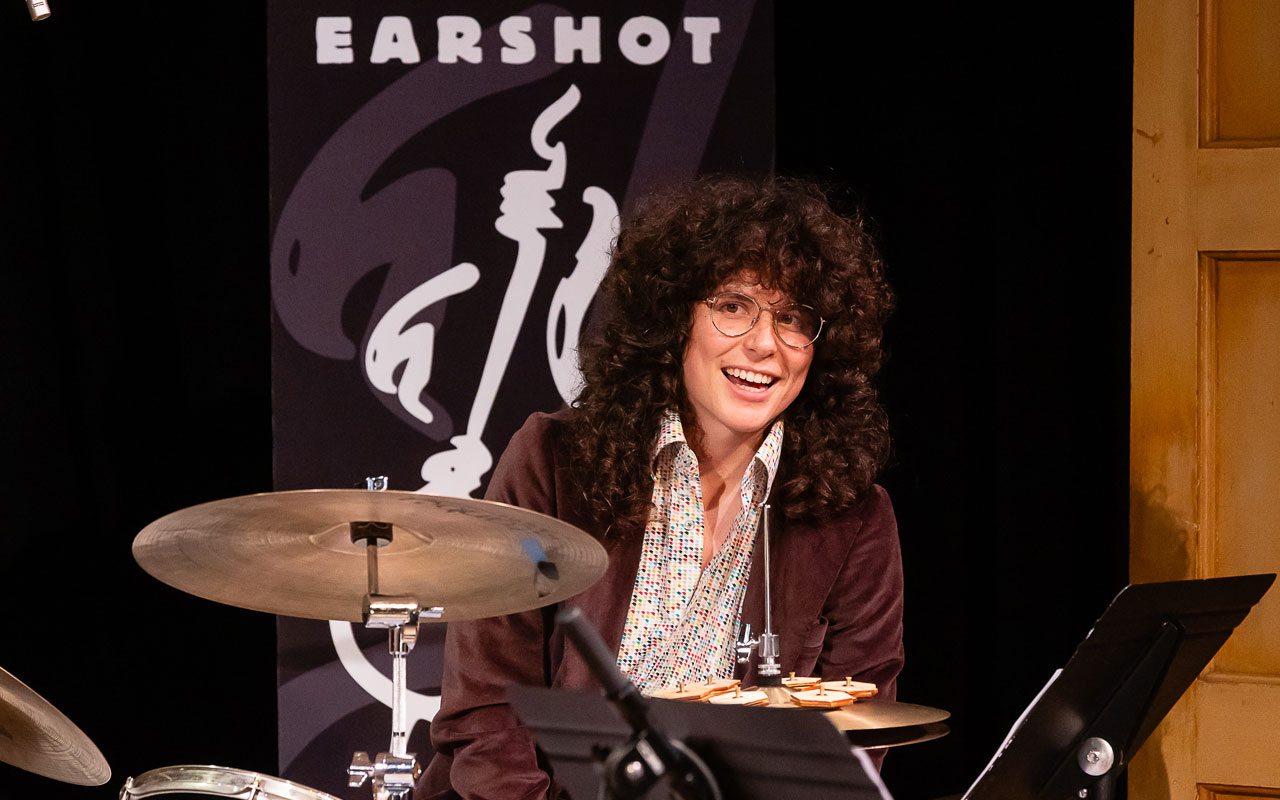
Sheridan Riley photo by Lisa Hagen Glynn
Why compose jazz?
It’s a question worth mulling over, not just because Earshot Jazz is currently looking to select a composer for a slot at next year’s festival. It’s also an interesting philosophical exercise on its own. Over a hundred years after jazz’s heyday, with seemingly millions of original pieces written in that time, what does it do to add to the pile? Why insist on writing your own music when there are perfectly good standards to riff over?
There are many other genres of music for which these kinds of questions would be a little ridiculous. (Should a rock musician only play covers? Is a rapper a rapper unless they’re spitting someone else’s words?) But in jazz, standards are everything. They are the subterranean lingua franca that binds its players together, facilitating not just individual but collective improvisation, the lifeblood of the genre. They’re also a measuring stick, an agreed-upon tool by which a listener (or, more cruelly, a fellow performer) can assess one’s technicality and creativity. A jazz club isn’t a jazz club until you can hear a song like “Caravan” penetrating the walls and wafting outside.
Original music, in this context, is comparatively impenetrable. It must be taught, then learned, then performed to fresh ears. There’s an argument to be made that it’s an act of indulgence, arrogance even — what makes you think you’re above the rite of passage every jazz musician must undergo to carry that card?
Outside of churlish conjecture, the truth is that the joys of composing jazz are just as salient as they are for any other genre of music, and in fact, maybe even more so. For one, original composition allows for a deeper level of creative expression. Improvisation over a series of familiar chords may in itself be the defining characteristic of creative expression in jazz, but it’s still creativity within a rigid framework. It’s hard to fully touch upon the complexities of an experience, commentary on current events, or the scope of one’s writing capabilities over 16 measures of open-ended improv.
Take Sheridan Riley, a jazz drummer in acts like Avi Buffalo and Joni Mitchell Quartet while also a contributor to countless indie bands (ALVVAYS, Hand Habits, Cassandra Jenkins). Songwriting is nothing new to Riley (who also helms a solo project called Peg) but jazz composition is something a little rarer. Using drums, percussion, and vocal samples, Riley constructed an ecstatic rumination on the connection between time and memory. “Isn’t it a wondrous feeling to reflect?” they remarked. “To remember? To tap into those formative experiences that brought you joy?”
It certainly was for Jahnvi Madan, who performed two original works live at 2023’s festival. Beforehand, she faced the same uncertainty with jazz composition. “I really struggled with, you know, is there something I have to do to prove I’m expressing that, because it is so abstract,” she said at the time. And yet the songs she debuted on stage, including the tender dedication to her cousin, “Love You More,” or the multifaceted “As of Now,” succeed in sublimating Madan’s experience into pure, tender feeling — a result of her epiphany from reading interviews with other Indian American musicians. “Whatever I write is going to authentically express that experience because my identity and my art have always been inseparable.”
Madan’s “Love You More” cedes to her accompaniment: previous commissioned artist Kelsey Mines’ outlines a question as her fingers travel across her upright bass, while Jonathan Paik, a Brooklyn artist admired by Madan, answers it with bristling piano. Their additions widen the scope of a piece about the mechanics of our closest relationships. It’s also an act of generosity — especially within a work of deep personal meaning — to yield the floor to someone else’s self-expression. It’s a heady alchemy that can only exist within an original piece.
So yes, there are plenty of jazz songs to play, and the standards certainly aren’t going anywhere. But to write your own music, to dare to put your spirit on the staff, is a virtue in itself. In the words of fellow Earshot composer Freddy “Fuego” Gonzalez, that’s the name of the game: “If you are improvising over the music and you’re putting something there that wasn’t because you’re feeling what’s in the moment and you’re telling a story, for me, I call that jazz.”
For more information about the program and how to apply, follow this link.